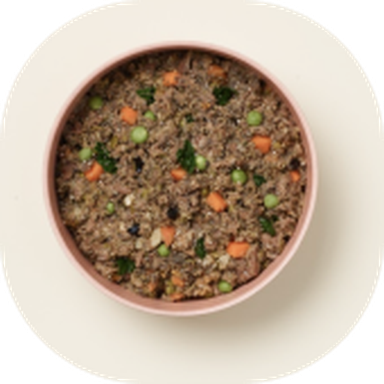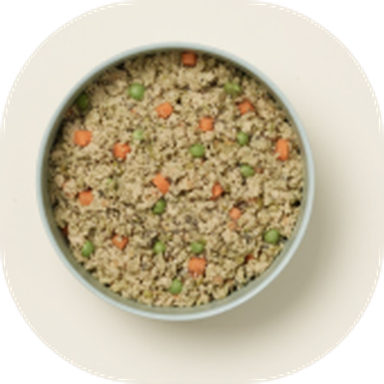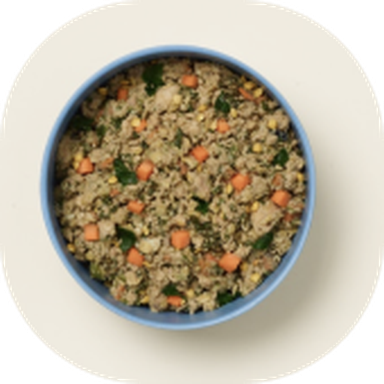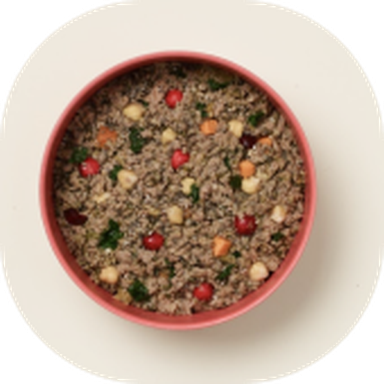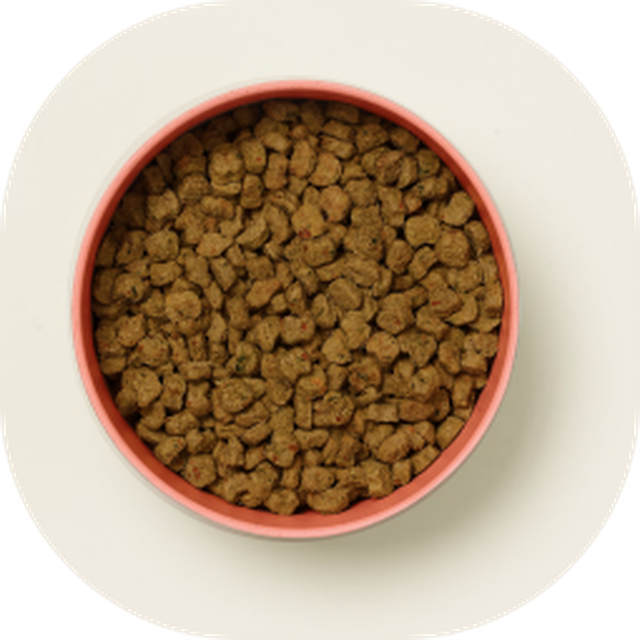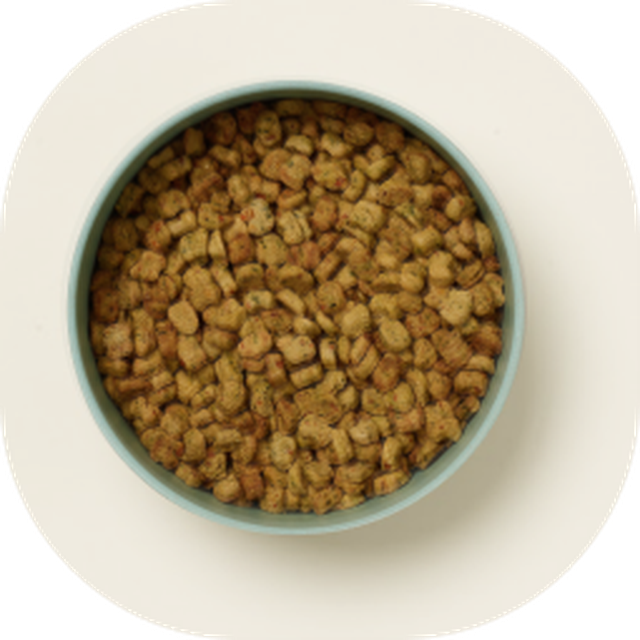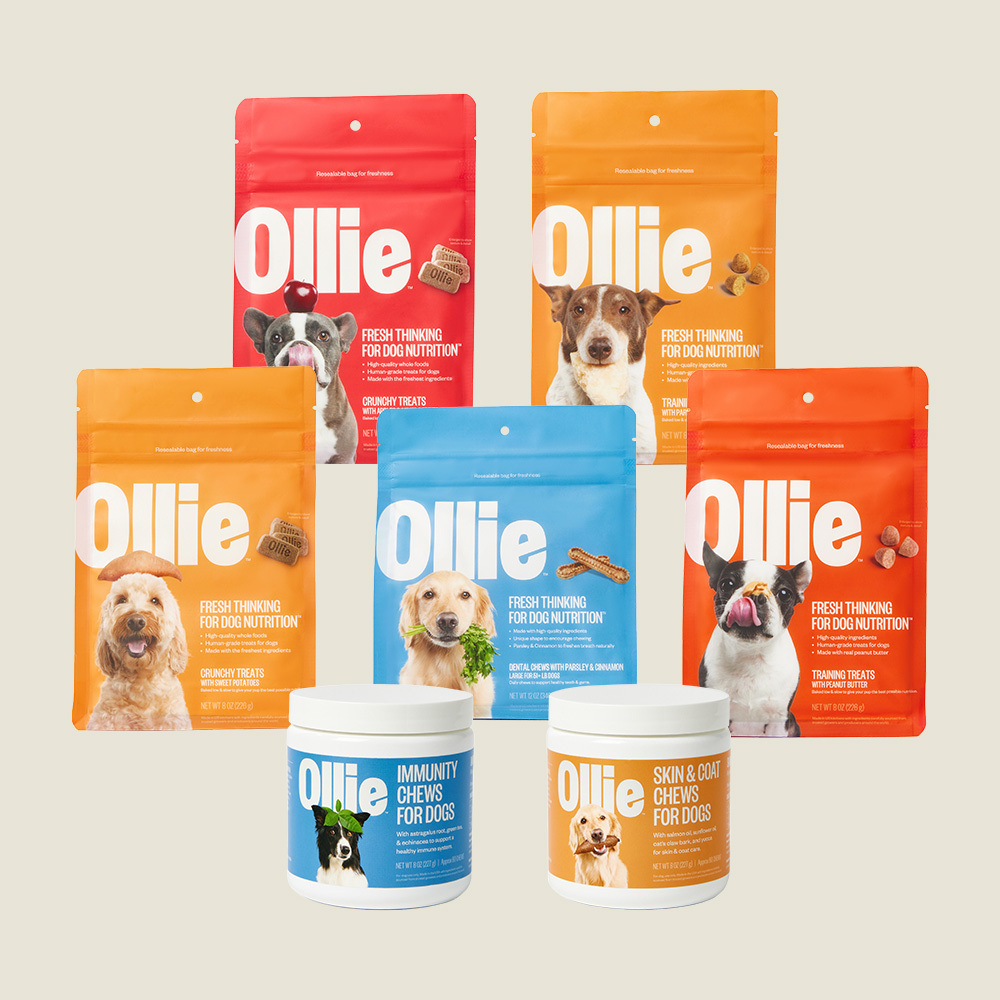Hey Ollie blog readers! We’re offering you an exclusive 60% OFF your starter box! Try now!
Can dogs eat fish? The most basic answer is yes, and in many cases, fish can provide healthy protein and nutrients in a dog’s balanced diet. If you’ve ever sat down to a salmon dinner and your pup is nearby, you probably know that most dogs love the smell. If you’re wondering whether it’s okay to mix some of that oceany goodness into your dog’s bowl, consider these tips for feeding dogs fish.
Benefits of Fish for Dogs
Fish is an easy way to give your dog high-quality protein. In Natural Dog Care, Bruce Fogel, DVM, MRCVS, writes, “Proteins are complex molecules made up of a variety of amino acids.” He explains that for dogs, “Protein, transported via the blood, helps tissues grow or repair.” The protein in fish also provides energy for your dog while helping in the creation of hormones and enzymes important for your dog’s overall health.
Unlike other protein sources, fish is especially rich in omega-3 fatty acids. The omega-3 fatty acids naturally found in fish, called EPA and DHA, help your dog maintain a shiny coat and healthy skin. They also have anti-inflammatory properties, making fish oil great for joint health and cognitive function. There is even some evidence that fish oil can slow the growth of cancer in dogs.
The health benefits of fish oil for dogs are why Ollie uses fish oil or cod liver oil in its recipes, all of which meet the nutritional levels established by the AAFCO Dog Food Nutrient Profiles for All Life Stages.
The Risks of Fish for Dogs
Fish is a healthy “sometimes food” for dogs, but unlike chicken, beef, or lamb, it does not have all the vitamins and minerals required by the AAFCO to be a “complete and balanced” meal. Fish is best enjoyed alongside other types of meats to ensure that your dog is getting all the nutrition he needs to stay healthy.
If you are cooking fish for your dog, it’s also important to be wary of bones. Small bones in a fish fillet that are easy for humans to remove as they eat can be harmful to pets. Fish bones can get lodged in a dog’s throat, causing a choking hazard, or can tear a dog’s gastrointestinal tract if swallowed whole.
Mercury poisoning is another risk for dogs who eat too much meat from bigger fish, including tuna and swordfish. While not common, mercury poisoning is very dangerous for dogs. Mercury poisoning in dogs can potentially cause blindness, kidney damage, and tremors.
The Best Kinds of Fish for Dogs
The best kind of fish for dogs is low-mercury fish, prepared simply. Good choices of fish for dogs include salmon, cod, haddock, and flounder. If you are preparing fish for your dog, make sure to buy boneless fillets and inspect them with a fork after cooking to avoid dangerous fish bones. Bake or steam fish without seasoning. Garlic and onions can be toxic for dogs, while too much oil or butter can cause vomiting or diarrhea, and may eventually lead to pancreatitis.
Unless you really want to fork over sushi-grade tuna to Fido, never give your dog raw meats, including fish. Uncooked fish may carry harmful bacteria that can make both you and your pup sick.
Tagged As:

The nutrition your dog needs,
the food they want.

Enjoying our articles? Subscribe our Newsletters and get new articles directly to your inbox
You might also like
20 June 2024
6 MINS READ
When to Switch Your Puppy to Adult Dog Food
Your puppy’s life is filled with milestones, including the transition from puppy to adult dog food. We explore when to make the switch and provide helpful tips.
by Ollie Pets
11 October 2023
5 MINS READ
Risks of Home Cooking for Your Dog
Although home cooking for your pup sounds like an intuitive and heartwarming way to serve up optimal health through fresh whole ingredients, there are many things you need to know about homemade f…
26 September 2023
7 MINS READ
How to Choose The Perfect Treat for Your Dog
Treats have a place on your dog’s food pyramid, but they should be given with care and consideration.
